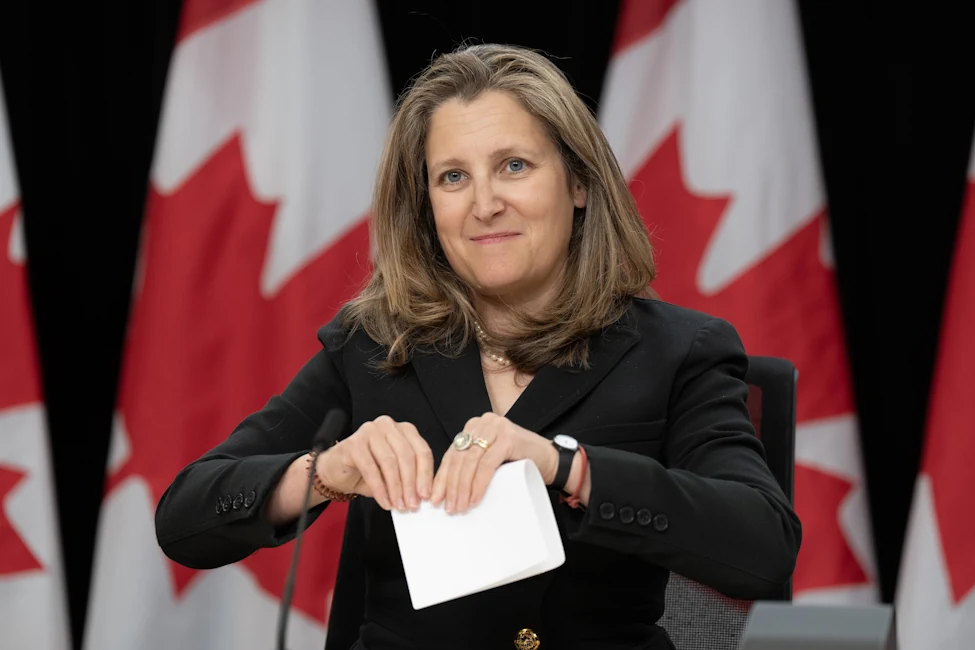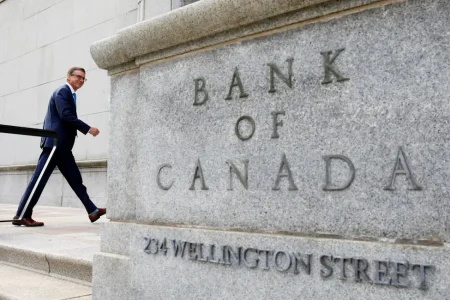In a stunning political shift, Finance Minister Chrystia Freeland has abandoned the federal government’s target to keep the deficit under $40 billion for 2023-2024, a key financial promise from the Trudeau administration. This unexpected move has ignited a fierce debate over the government’s fiscal strategy amidst rising economic uncertainties.
Freeland, while preparing to unveil the fall economic statement on December 16, emphasized a new financial anchor: maintaining the debt-to-GDP ratio on a downward trajectory. “This ensures fiscal viability and demonstrates our commitment to responsible governance,” Freeland assured during a press conference.
However, the abandoned target has drawn sharp criticism. Conservative leader Pierre Poilievre slammed the Liberals for presiding over what he described as a “steroid-fueled deficit.” The opposition claims this signals a government losing its grip on fiscal responsibility as the country edges closer to the next federal election.
A Record of Missed Targets
Freeland’s revised focus aligns with previous fiscal anchors: keeping deficits below 1% of GDP by 2026-2027. Yet, critics argue that shifting benchmarks reflect deeper issues. The Parliamentary Budget Officer reported a $46.9 billion deficit for the last fiscal year, significantly exceeding projections.
Economist Emmanuelle B. Faubert from the Montreal Economic Institute minced no words: “Failing even the most modest deficit control targets signals a troubling lack of fiscal discipline. It’s a warning that spending is spiraling out of control.”
Political Tensions Emerge
The deficit discussion has also exposed internal government friction. Reports suggest growing tensions between Freeland and Prime Minister Trudeau over spending decisions, such as a costly two-month GST holiday, projected to cost $1.5 billion. Trudeau’s office dismissed these as “rumors,” but the cracks in the government’s united front are becoming harder to ignore.
Implications for Canadian Entrepreneurs
This fiscal uncertainty presents both challenges and opportunities for Canadian entrepreneurs. While government spending often supports economic growth, businesses may face higher borrowing costs and reduced investor confidence if fiscal discipline continues to wane. Freeland’s reassurance of a declining debt-to-GDP ratio could help restore market confidence, but questions remain about whether the government can balance ambitious social spending with economic prudence.
As the fall economic statement looms, Canadian entrepreneurs are watching closely. Will the government’s new fiscal anchor be enough to stabilize the economy and foster a business-friendly environment? Or will this be yet another chapter in a saga of missed financial targets?







